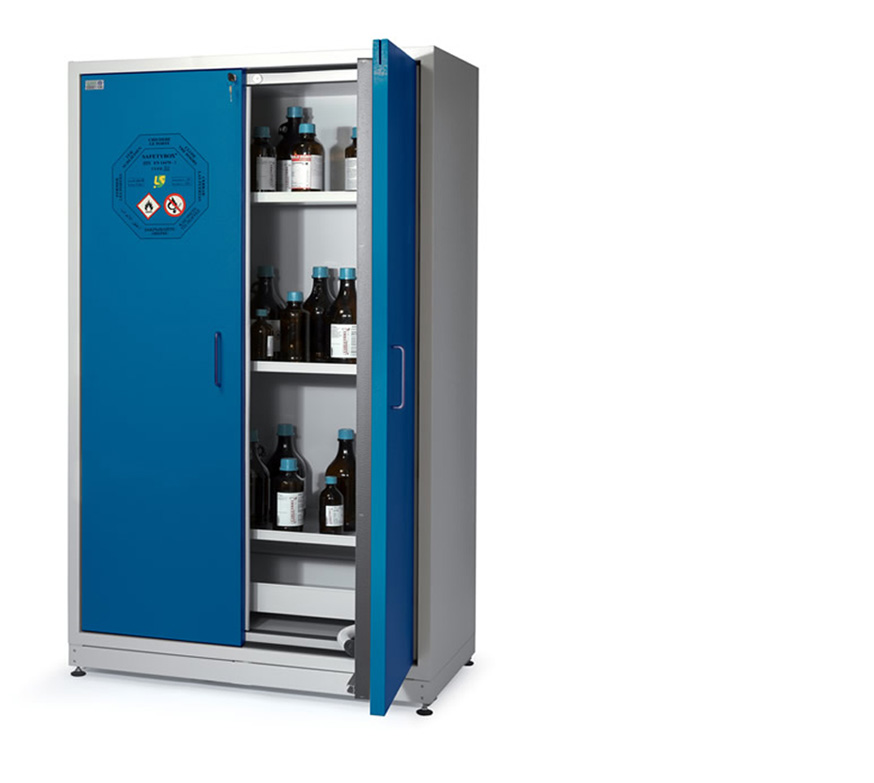Why are self-closing doors necessary in safety cabinets for flammable products?
If you are thinking of buying a cabinet for flammable products, you may wonder why they are equipped with automatic locking systems: this is not just a convenience, but a real requirement to protect your workplace from flammability risks.
In the following, we will answer some questions that often arise about the function of this type of automatic closing door, trying to explain why this system is considered essential when it comes to chemical security.
Why is automatic locking necessary?
This type of closure provides a thermal barrier, vapour and liquid containment in the event of an emergency situation related to the flammable products contained in the cabinet.
Thermal barrier function
The cabinets in question are specially designed to act as a heat shield to protect flammable substances from external fire. At the same time, if it is the substances themselves that are on fire, the automatic closure allows them to be isolated immediately.
Doors, walls and upper sides of the cabinets are made of double-walled steel with an insulating function. Everything is properly sealed to prevent heat radiation and flames from penetrating the cabinet: these features would be rendered useless if the cabinet were not properly closed.
Vapour containment function
Cabinets for flammable liquids intended for indoor use are also designed to contain any chemical vapours that might be released. They are heavier than air and can spread rapidly over long distances. In addition to being flammable and potentially explosive, these vapours are dangerous to human health in themselves.
Inhalation of these fumes can cause:
In addition, if flammable vapours come close to ignition sources or incompatible substances, they may cause damage to the workplace in question and the surrounding environment.
Liquid-tight function
Self-closing doors ensure that the cabinets maintain their ability to isolate liquids: these cabinets protect the working environment while also containing any leaks and spills caused by broken or damaged containers.
One of the key reasons why these cabinets are equipped with automatic locking is to reduce the likelihood and impact of a leakage or spillage: without this locking system, its protective functions would be nullified if the doors were left open.
Can doors be kept open with automatic locking while we are busy filling or emptying the cabinet?
The quick answer to this recurring question is simply "No". Do not leave the doors of your cabinet open for flammable substances, especially in the presence of sticks, pieces of wood, pallets or machinery.
Do you need your cabinet to be equipped with a device that keeps the doors open when needed? According to standards, if the cabinet is equipped with this instrument, it must be able to ensure closure as soon as the nominal temperature reaches 80°C.
There is another reason that can discourage people from keeping their cabinet doors open: it's called distraction and it's easy to run into it.
If you don't want to create the conditions for dangerous situations in places where your employees habitually leave the doors open, let the automatic closures help the protective cabinets do their job to the full.

